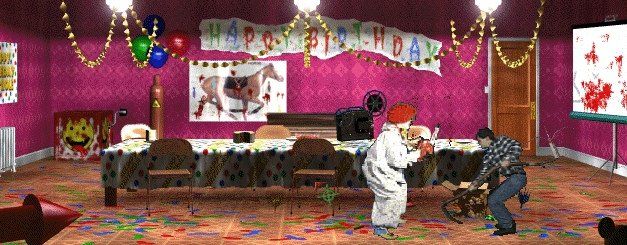Afaik the category of "interactive fiction" usually refers to games/media which allow the player a few choices, but ultimately they are a series of cutscenes with little to no ability given for the player to move around in the world and find things on their own.
In the adventure game realm, in particular, the juxtaposition is to making game-progression dependent on thinking through puzzles, often tied to previous puzzles in the game, and furthermore to require actual familiarity with the world locations instead of just choosing out of a few options where to move to or what to answer or what item to use where.
This is an issue for myself, cause naturally i am more inclined to have a game i am making be guided by a set story. That said, if there is one thing i always loved in adventure games it's the sense that you can just move around as if you are indeed there and trying to discover the next clue. Yet this can often require the game to have upwards of 10 different rooms, which for an indie game or demo is not always that easy
-At which point would you say that something is closer to interactive fiction than a point n click adventure game? Would having an inventory and a reasonable number of combinations of verbs/actions be enough? A text parser? (you need to type some words occasionally, i plan to have one). Multiple endings? (also plan to do that). Or is it more about the game dynamic, as in having some "peaceful" locations outside the ones where the action takes place (a trope very usual in such games).

In the adventure game realm, in particular, the juxtaposition is to making game-progression dependent on thinking through puzzles, often tied to previous puzzles in the game, and furthermore to require actual familiarity with the world locations instead of just choosing out of a few options where to move to or what to answer or what item to use where.
This is an issue for myself, cause naturally i am more inclined to have a game i am making be guided by a set story. That said, if there is one thing i always loved in adventure games it's the sense that you can just move around as if you are indeed there and trying to discover the next clue. Yet this can often require the game to have upwards of 10 different rooms, which for an indie game or demo is not always that easy

-At which point would you say that something is closer to interactive fiction than a point n click adventure game? Would having an inventory and a reasonable number of combinations of verbs/actions be enough? A text parser? (you need to type some words occasionally, i plan to have one). Multiple endings? (also plan to do that). Or is it more about the game dynamic, as in having some "peaceful" locations outside the ones where the action takes place (a trope very usual in such games).

